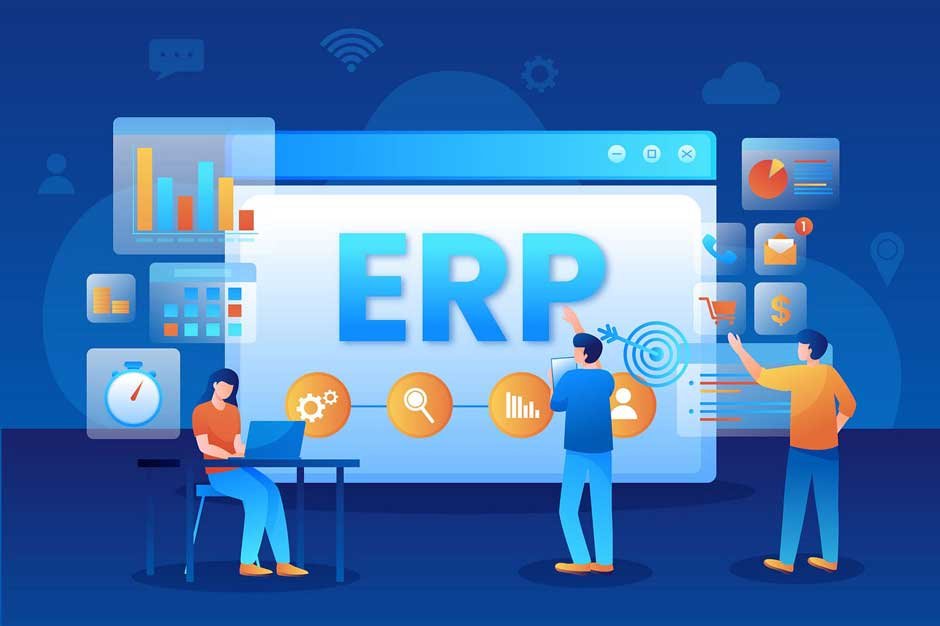Strict quality control must be maintained to guarantee product uniformity, compliance, and customer pleasure. With the arrival of technology, Manufacturing Enterprise Resource Planning (ERP) software has become a potent instrument to improve many production elements, including quality control.
This article will explore how Manufacturing ERP Software is pivotal in elevating and streamlining quality control processes in the manufacturing industry.
1. Centralized Data Management
Manufacturing ERP software serves as a central repository for manufacturing process data. ERP systems give a single picture of the manufacturing process by combining data from several departments, including supply chain, inventory, and production.
Quality control teams can make decisions and resolve problems more quickly because this consolidated data management guarantees access to pertinent information in real-time.
2. Real-Time Monitoring and Visibility
The capability of manufacturing ERP software to provide real-time monitoring and visibility into manufacturing processes is one of its main benefits. Teams in charge of quality control can monitor each step of the production process in real-time, from obtaining raw materials to producing the final product.
Because of this visibility, possible problems can be proactively identified, allowing for prompt action and averting the manufacturing of subpar or defective items.
3. Automated Quality Checks
Software for manufacturing ERP frequently comes with automated quality control modules. Modifying these modules to include certain quality control guidelines, standards, and criteria is possible. Automation lowers the possibility of human mistakes by reducing the need for manual inspections. It guarantees that quality controls are implemented uniformly throughout all manufacturing facilities.
4. Supplier Quality Management
Maintaining the overall quality of a product requires careful consideration of the raw material quality. Supplier Quality Management (SQM) features in ERP systems enable manufacturers to assess and track the performance of their suppliers. Manufacturers can improve the overall quality of their products by making well-informed judgments about their suppliers by monitoring supplier performance data.
5. Traceability and Recall Management
Traceability is critical in the event of a product recall or quality concern. Traceability is made easier by manufacturing ERP software, which keeps thorough records of every component and production process.
This traceability function helps producers promptly identify impacted batches in the event of a recall, reduce customer impact, and resolve the underlying source of the problem.
6. Quality Analytics and Reporting
Manufacturing ERP solutions provide comprehensive reporting and analytics capabilities that give quality control teams useful information. Quality control specialists can pinpoint problem areas, streamline workflows, and make data-driven choices by examining past data and patterns to increase overall product quality.
7. Compliance Management
Ensuring compliance with regulatory norms and criteria is of utmost importance in manufacturing. Features for compliance management are included in ERP software, which helps firms stay current on industry laws and ensure their procedures follow these guidelines. The likelihood of expensive fines and production delays is decreased by taking a proactive approach to compliance.
8. Continuous Improvement Initiatives
ERP software for manufacturing fosters a continuous improvement culture. Quality control teams can use the ERP system’s data and insights to pinpoint areas where production processes need to be improved. ERP software supports continuous efforts to improve the standard of product quality, whether they are focused on workflow optimization or quality control method refinement.
The Strategic Importance of Manufacturing ERP Software in Quality Control
Manufacturing ERP software is an essential tool for quality control since it provides a complete solution for improving and optimizing different parts of the manufacturing process.
ERP systems enable firms to offer consistent, high-quality products while remaining flexible in market changes. These features range from automated quality checks and traceability to real-time monitoring.
Using ERP software is becoming more than simply a technological investment as the manufacturing landscape changes; it is a strategic need for everyone dedicated to upholding the highest quality control standards.

